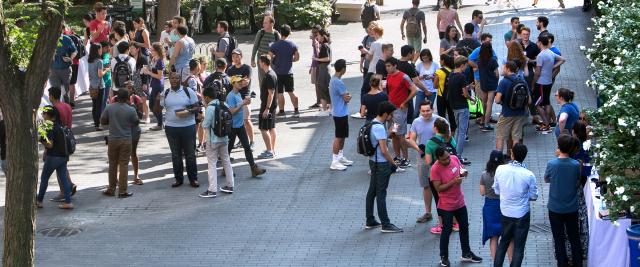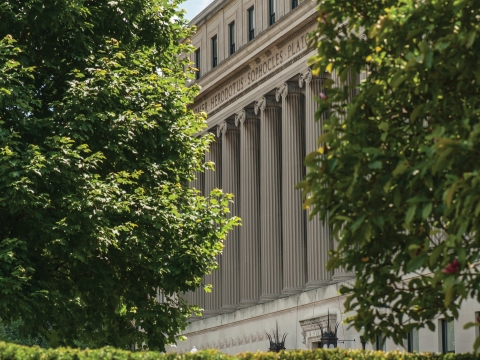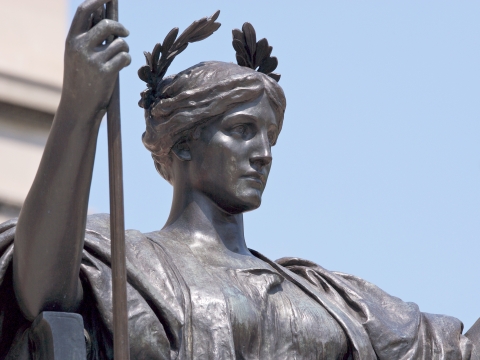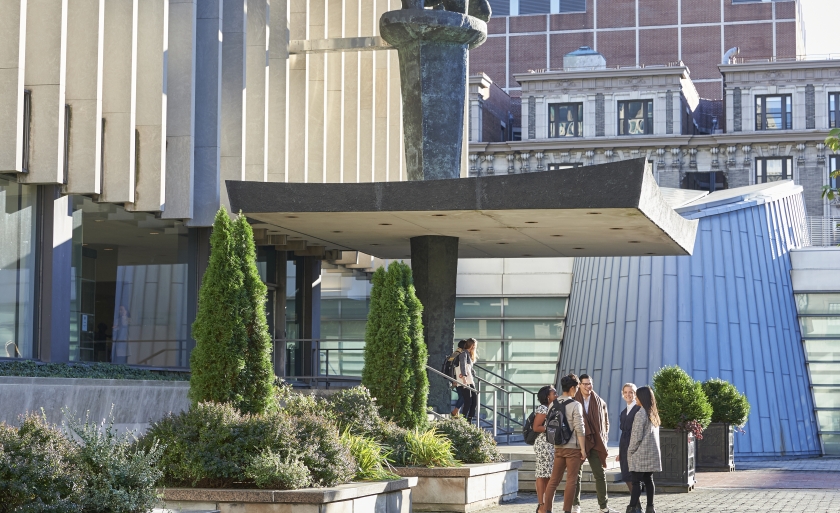A Diverse Community
At Columbia Law, we cultivate and value a talented community that is broadly and multidimensionally representative. Our students come from countries around the world, speak hundreds of languages, and have earned degrees in every subject, from comparative literature to particle physics. And they have educational backgrounds as diverse as they are, whether they have lawyers in their families or are the first in their family to attend college.
Support and Engagement
Inclusion and belonging events and programs are a fixture of the Columbia Law experience, beginning before new student orientation and continuing well after graduation.
For incoming students:
- Connecting Columbia Law, our pre-orientation event focused on welcoming and empowering incoming 1Ls who are "firsts", including from communities that have been historically underrepresented in law schools. All 1Ls are welcome.
- In Fall 2021, the Law School created five new need-based awards, awarded on an annual basis, known as the Columbia Law Diversity and Opportunity Scholarships. Incoming J.D. and LL.M. students who are socioeconomically disadvantaged, who have experience living or working in diverse environments, and/or who have demonstrated experience in or commitment to working with historically underserved or underprivileged populations are eligible to receive these scholarships.
- The Bridge to Opportunity Scholarship program, which provides a three-year, full-tuition scholarship to first-generation college graduates with demonstrated financial need, advances the Law School's belief that a top-quality legal education should be accessible to qualified applicants with exceptional promise, regardless of their individual circumstances or family history.
For current students and alumni:
- Public Interest Mondays, a lunchtime series of the Office of Public Interest/Public Service Law and Careers, featuring speakers and discussion topics on a range of pressing issues, including social activism, civil and human rights, racial justice, law and the arts, and mass incarceration.
- Lawyers, Community, and Impact Series, which features Columbia Law experts, community advocates, and practicing lawyers in conversation about the most pressing issues of the moment, and the Beyond the Casebook Series, where faculty led small-group lunchtime discussions with students around timely, relevant issues outside of the classroom setting.
- Academic advising resources, panels, and lunches to help all students acclimate to and navigate the Law School.
- Professional development programs and mentorship opportunities with the Office of Public Interest/Public Service Law and Careers, the Office of Private Sector Careers, and the Office of Judicial Careers. The Academic Scholars Program, which identifies and provides academic and financial support for J.D. candidates who want to pursue a career in legal academia.
- Frequent events—from weekly panels to annual conferences—sponsored by student affinity groups and journals.
- Racial and Social Justice Fellowships, $25,000 grants awarded in 2L year to J.D. students who intend to pursue racial justice legal work after graduation.
- The Paralegal Pathways Initiative, which seeks to amplify the talents of formerly incarcerated individuals by providing skills-based legal training and professional mentorship, advance racial equity in the legal field, build knowledge of the impacts of the criminal legal system among current and future legal professionals, and expose the legal profession to an untapped wealth of legal experience and talent.
- The Loan Repayment Assistance Program for J.D. students interested in becoming public interest lawyers. It is among the most generous in the country to ensure that law school debt does not prevent graduates from entering the public interest sector.
- The development of new pro bono projects and experiential learning opportunities in Harlem, such as the Neighborhood Defender Service of Harlem Community Defense Externship.
- Opportunities for networking and connection, including the Alumni of Color initiative.



